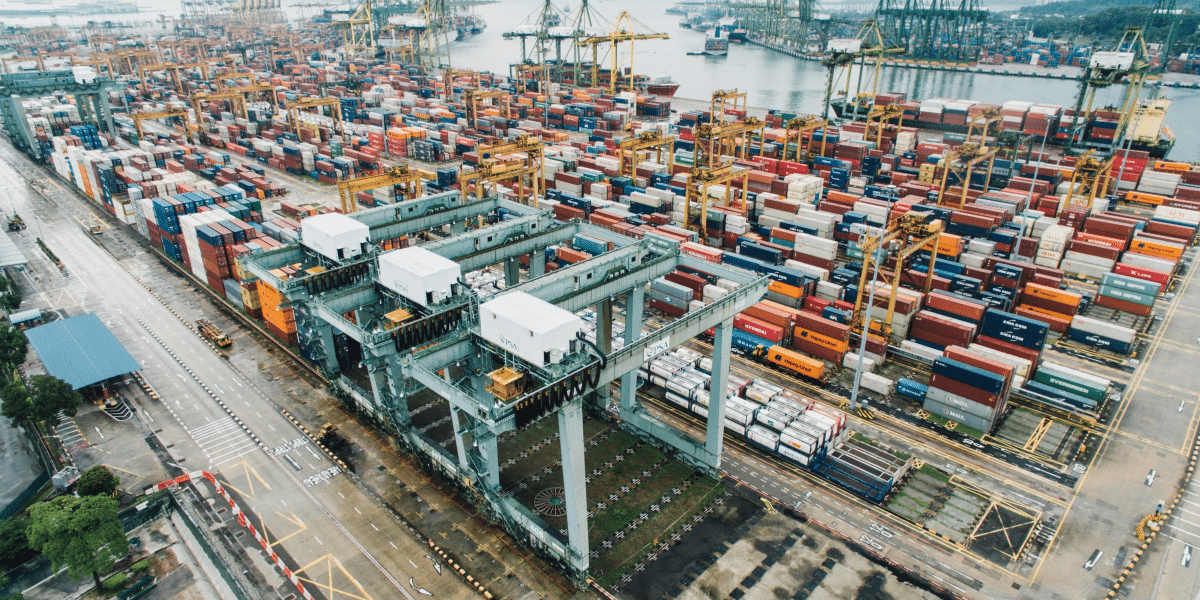In an interconnected global economy where international trade is a vital impetus to economic growth, businesses expand their operations across borders, and the seamless transportation of goods becomes increasingly important. Smooth and efficient trade, therefore, calls for a standardized system of shipping terms.
A shipping glossary often contains Incoterms (International Commercial Terms) outlining the responsibilities, costs, and risks involved in goods transportation between buyers and sellers. These shipping terms offer a clear framework for international trade, facilitate global commerce, and mitigate potential disputes.
Understanding Shipping Terms: A Brief Overview
Shipping terms, often standardized by Incoterms, are a set of internationally recognized rules that define the responsibilities, costs, and risks involved in goods transportation. Some of the most common Incoterms include:
- EXW (Ex Works): The buyer is responsible for all transportation costs and risks from the seller’s premises.
- FOB (Free On Board): The seller is responsible for delivering the goods to a specified port or place of shipment. The buyer assumes responsibility for transportation costs and risks from that point onward.
- CIF (Cost, Insurance, and Freight): The seller is responsible for delivering the goods to a specified port of destination, including the costs of insurance and freight.
- DAP (Delivered At Place): The seller is responsible for delivering the goods to a specified place of destination, but the buyer is responsible for import clearance and customs duties.
Understanding these shipping terms helps buyers and sellers clearly define their obligations and avoid potential disputes. Incoterms provide a common language for international trade, facilitating smooth and efficient transactions.
The Importance of Shipping Terms in International Trade
Shipping terms play a crucial role in international trade by providing a clear framework for allocating risks and costs between buyers and sellers. A shipping glossary helps businesses mitigate potential risks, optimize costs, and ensure smooth and efficient international trade.
Risk Allocation
One of the primary functions of shipping terms is to allocate risk between the buyer and the seller. For example, in an EXW transaction, the buyer assumes all risks from the very moment the goods leave the seller’s premises. In contrast, in a CIF transaction, the seller bears the risk of loss or damage to the goods until they are delivered to the specified destination port. Risk allocation significantly impacts insurance costs and claims. Buyers and sellers must carefully consider the level of risk they are willing to assume and choose appropriate shipping terms accordingly.
Cost Allocation
Shipping terms also influence the division of transportation costs between the buyer and the seller. In a FOB transaction, the seller is responsible for delivering the goods to the specified port of shipment, while the buyer bears the ocean freight cost. In a CIF transaction, the seller covers ocean freight and insurance costs. Understanding the cost allocation associated with different shipping terms can help businesses make informed decisions about pricing strategies, profit margins, and overall cost management.
Clear Communication
Shipping terms serve as a common language for international trade, reducing the potential for misunderstandings and disputes between buyers and sellers. Clearly defining the responsibilities, costs, and risks associated with each transaction using these terms can minimize confusion and ensure that both parties understand their obligations. Precise language and clear definitions are essential in drafting contracts and agreements. Any ambiguity or vagueness in the terms can lead to costly legal battles and delays in the supply chain.
Facilitating International Trade
Standardized shipping terms like Incoterms are crucial for streamlining international trade processes. Incoterms provide a globally recognized framework, facilitating smooth customs clearance and border formalities. When customs officials and other regulatory authorities understand the specific responsibilities and obligations outlined in the shipping terms, they can expedite the clearance process, reducing delays and costs. Shipping terms also help harmonize trade practices, making international trade more efficient and predictable. This fosters trust and cooperation between trading partners, leading to increased global commerce.
Conclusion
Shipping terms are essential tools for facilitating international trade. As the global economy continues to evolve, their importance will only increase. Technological advancements are further transforming how international trade is conducted. Electronic data interchange (EDI) and blockchain technology are revolutionizing supply chain management and logistics.
However, the fundamental principles of shipping terms remain relevant. To navigate the complexities of international trade, businesses should seek professional advice from customs brokers, freight forwarders, and international trade lawyers. Effective understanding and adoption of shipping terms can help companies optimize their supply chains, reduce costs, and enhance their global competitiveness.
Published by: Josh Tatunay
















